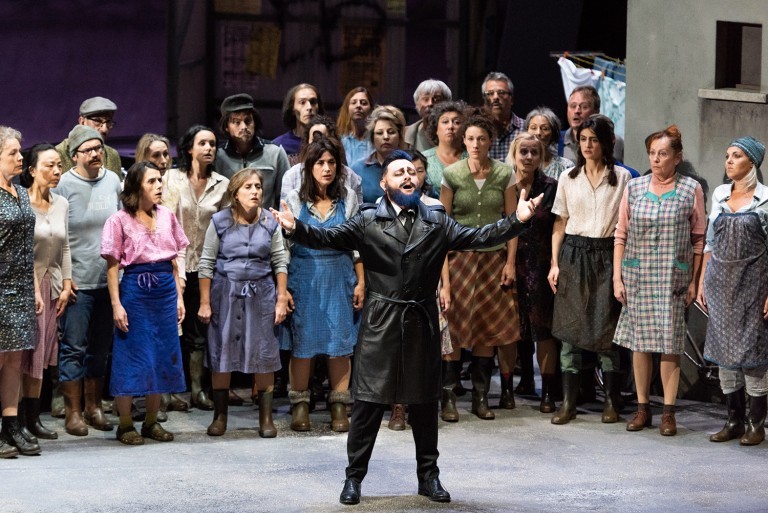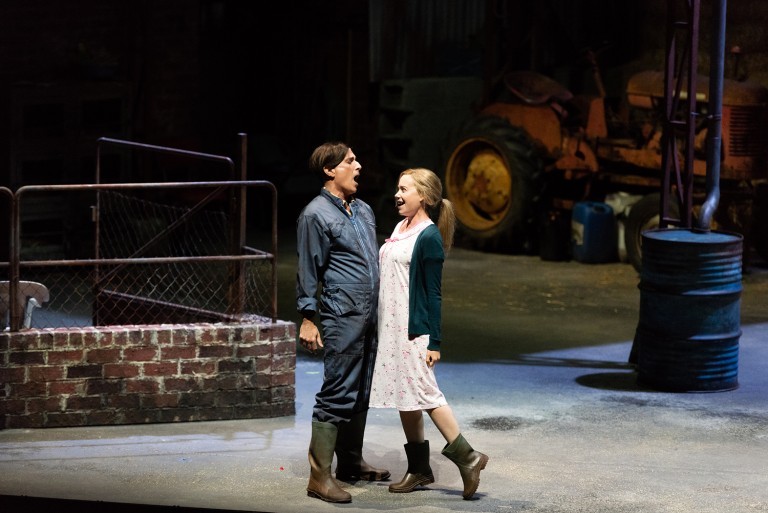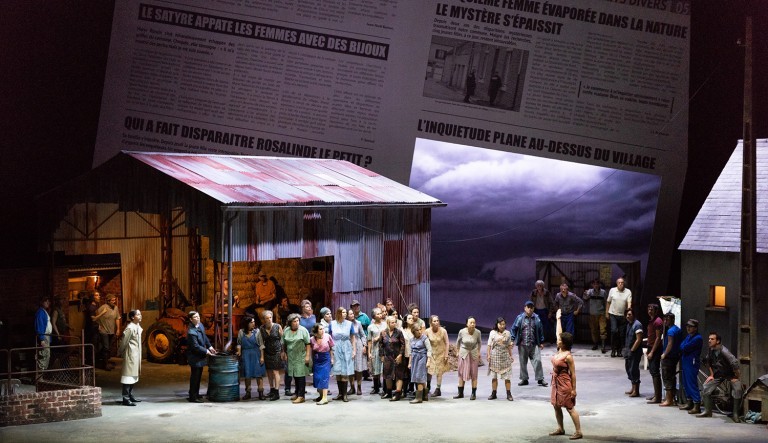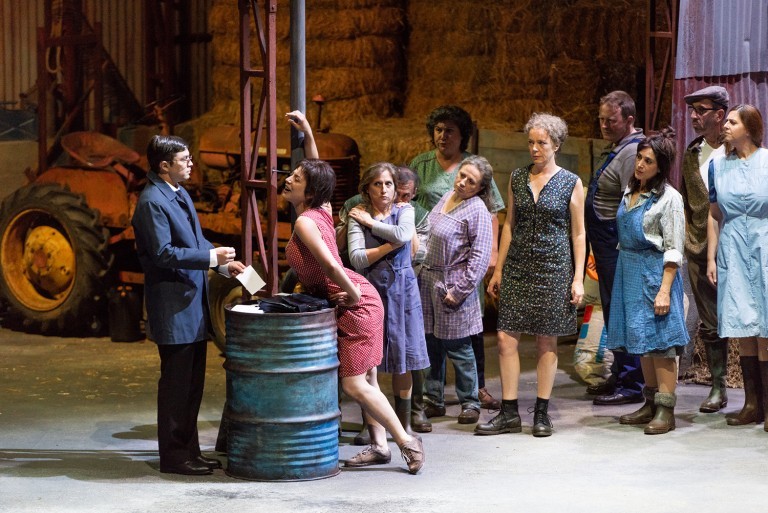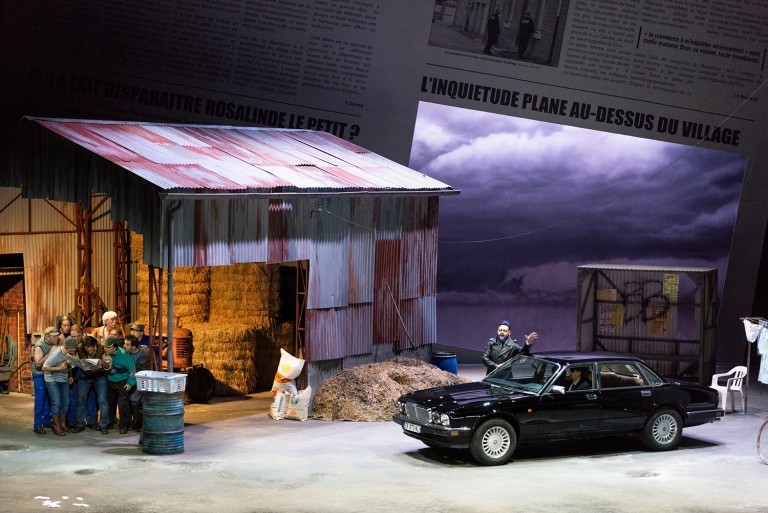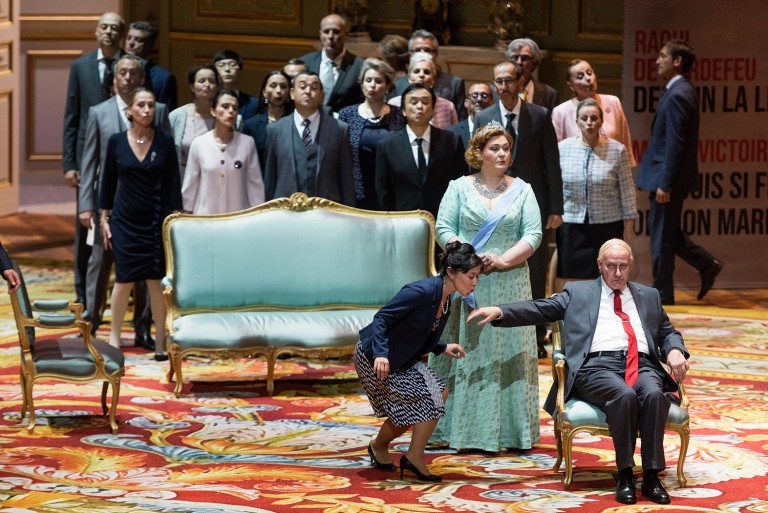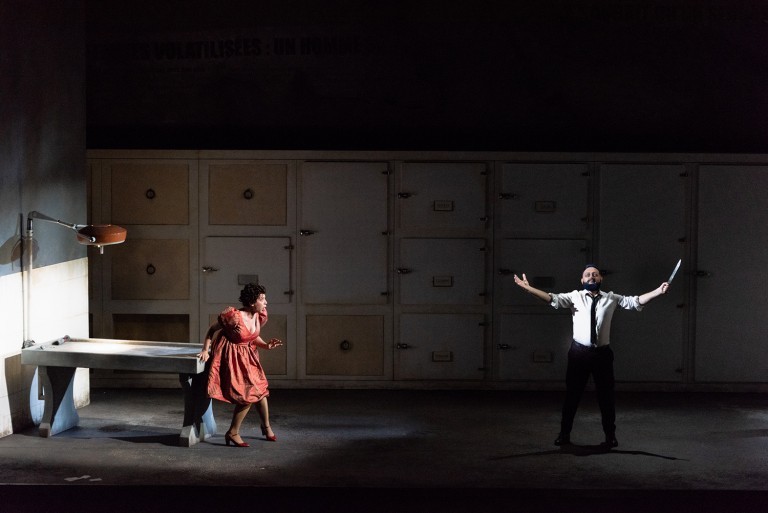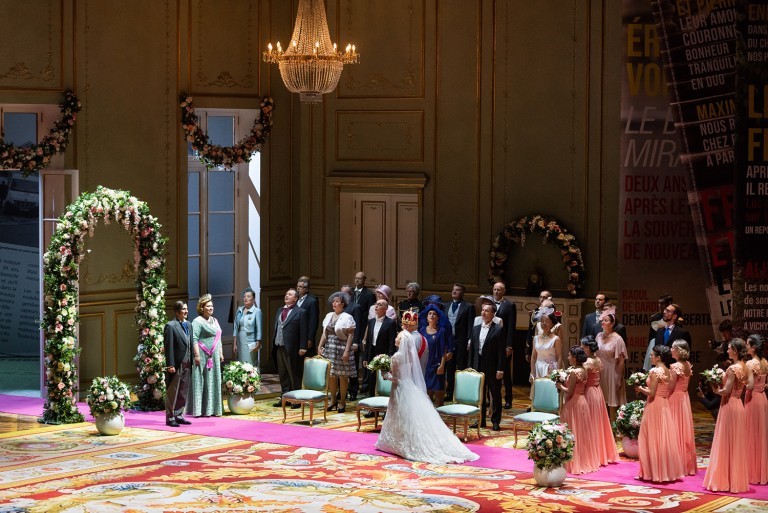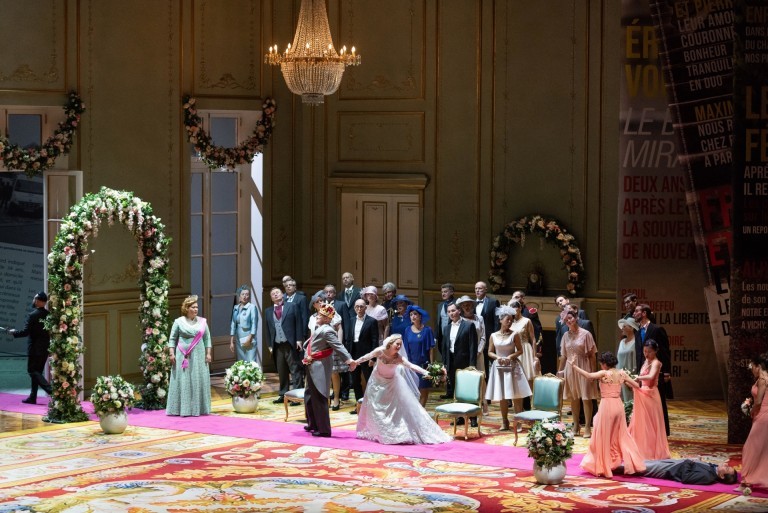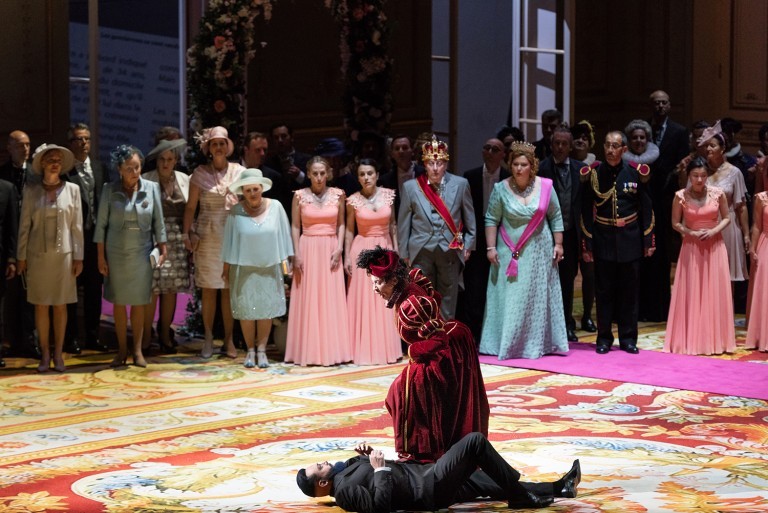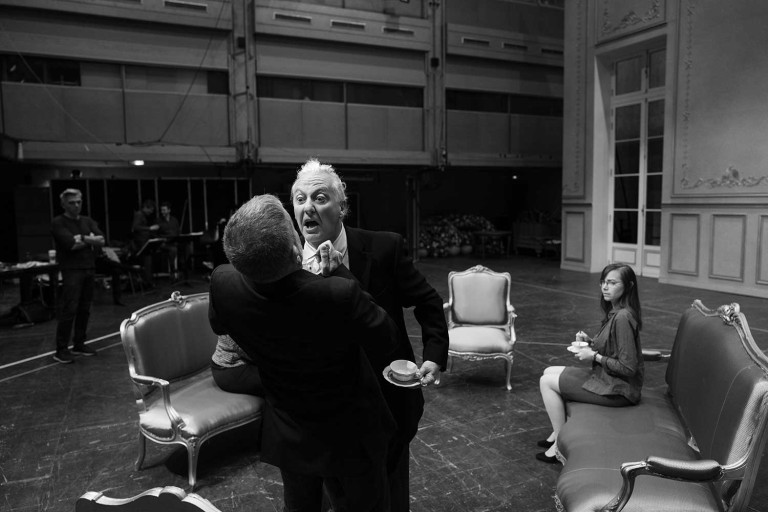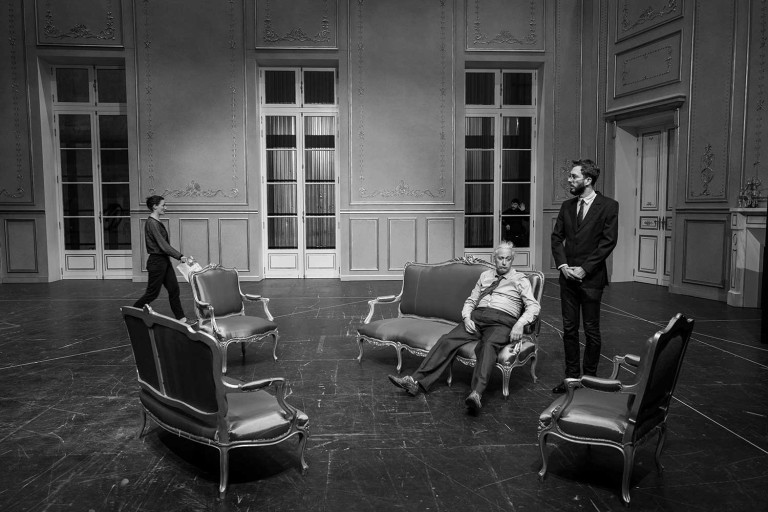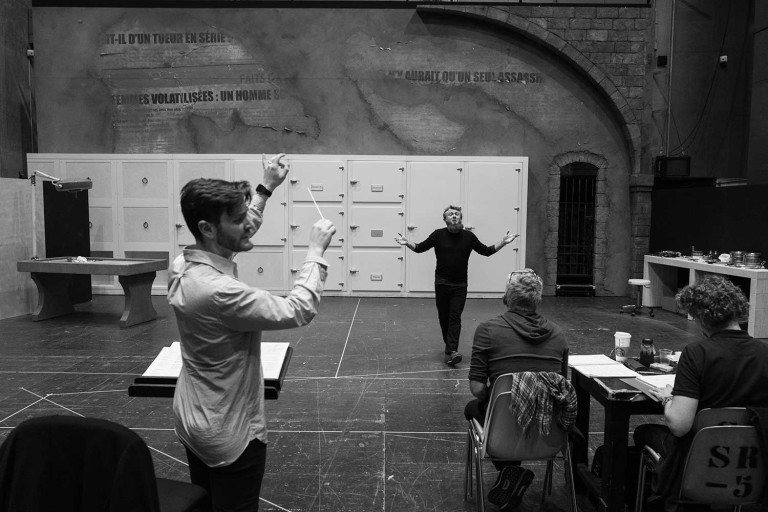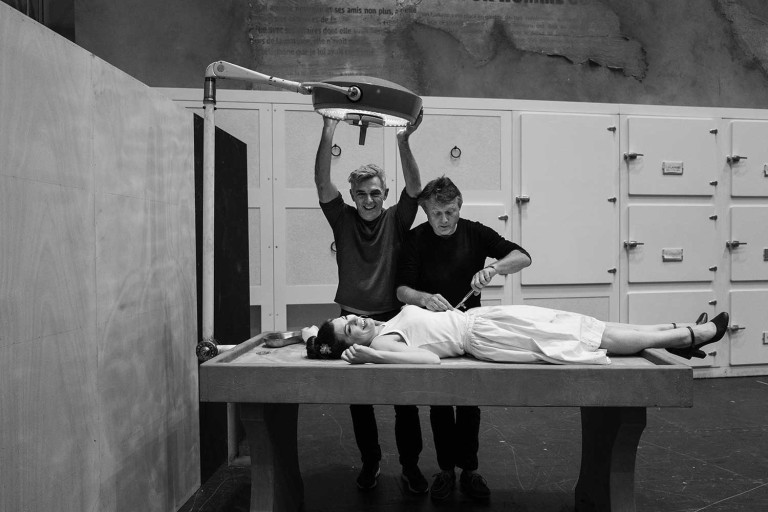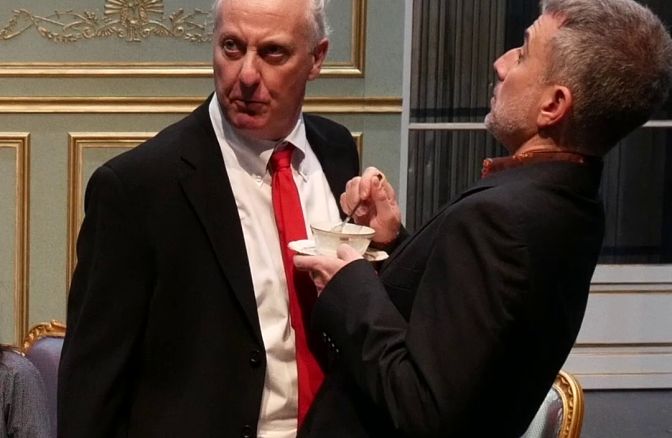Synopsis
When Barbe-Bleue loses his fifth wife, the turbulent Boulotte is selected at random to be the next one. But Barbe-Bleue falls in love with Hermia – who loves the shepherd Saphir – and soon wearies of Boulotte. So, he asks his alchemist to concoct for him an “anti-wife” philtre. But, as on the previous occasions, it is merely a sleeping potion and Boulotte wakes up the other five “dead” wives. They reappear, dressed up as gypsies and bring the truth to light.
A Successful Satire
With his Barbe-Bleue, which premiered at the Théâtre des Variétés in 1866, Offenbach turned to derision Charles Perrault’s famous, cruel tale with a libretto by Meilhac and Halévy. The three of them threw themselves into the task, turning their idle, blathering Barbe-Bleue into a caricature of the parvenus of the Second Empire. Which did not prevent, and even aided, the Parisian public’s enthusiasm and the opera’s worldwide success.
After attracting attention in 2000 with his La Belle Hélène, the stage director Laurent Pelly has already run through a few skirmishes with the world of Offenbach at the Opéra de Lyon with Orphée aux Enfers, before continuing with many other classics by this master of operetta, including most recently the celebrated Roi Carotte. Fantastical, caustic, tending towards offbeat comedy and visual gags, his style, derived as much from the cinema and graphic novels as classical culture, marvellously shakes up the great composers, and is a perfect match for the fantasies of Offenbach.
Opera bouffe in three acts and four tableaux, 1866
Libretto by Henri Meilhac and Ludovic Halévy
New production
In partnership with the Royal Opera House Muscat, Oman, and the Opéra de Marseille
Download the program
